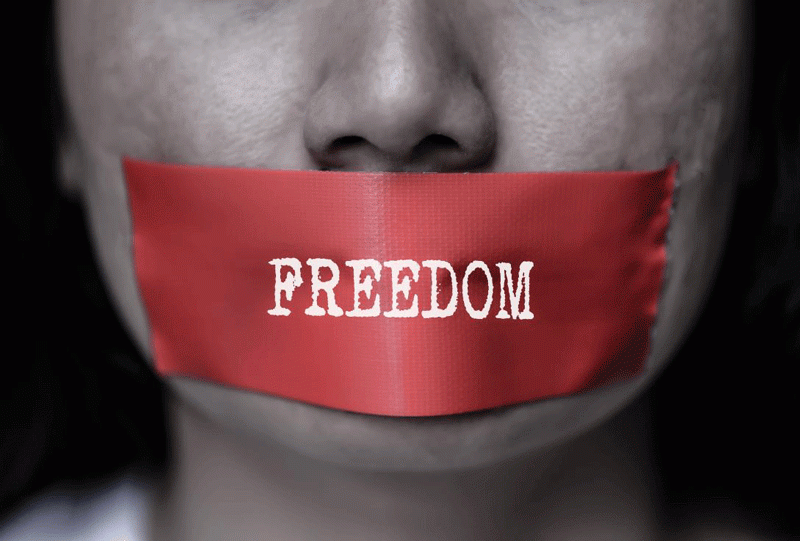
THE introduction of the controversial “Patriot Act” in Zimbabwe will contribute to the erosion of political and civil liberties in a country that has been in the grip of one political party since independence in 1980.
President Emmerson Mnangagwa signed the new Act, officially called the Criminal Law (Codification and Reform) Amendment Act, 2023, into law on July 14.
His government said the law was indispensable to holding accountable those who jeopardised national interests.
It allows for monitoring and suppressing of political organisations and journalists who are critical of the government.
It carries harsh sentences, including death, for acts the government deems to be “unpatriotic”. Such a law, in a country with a history of abuses of individual freedoms, will further undermine the right to freedom of expression enshrined in the Constitution.
I have researched post-liberation Zimbabwe’s political economy and noted how the ruling Zanu PF party has become conflated with the State.
The Zanu PF-dominated legislature passes laws that erode political and civil liberties. The new Act represents another move by the party to tighten its grip on power.
In my view, the Act will enable the government to label legitimate criticism as unpatriotic behaviour.
- Chamisa under fire over US$120K donation
- Mavhunga puts DeMbare into Chibuku quarterfinals
- Pension funds bet on Cabora Bassa oilfields
- Councils defy govt fire tender directive
Keep Reading
It will, for instance, penalise individuals who hold meetings with foreign diplomats.
As French philosopher Montesquieu stated in 1742: "There is no crueller tyranny than that which is perpetrated under the shield of law and in the name of justice."
National interest
Opposition activists have expressed concern that the law is designed to punish citizens, civil society organisations and political adversaries of the ruling party.
Zimbabwe is due to hold general elections on August 23. The government could launch a crackdown on dissent.
Some people see the Act as a response to the sanctions the United States imposed on the Zimbabwean government in 2001 for human rights abuses.
The State-owned newspaper The Herald said the law was a response to Zimbabweans who advocated for the imposition of sanctions on Zimbabwe. The government has exploited the sanctions as a pretext to suppress dissent and shift the blame for the country’s problems.
While the Patriot Act amends the Criminal Law [Codification and Reform] Act to include mandatory minimum prison terms for rape, it also criminalises acts it deems as wilfully injuring sovereignty and national interests of Zimbabwe
The problem lies in the broad definition of “national interests”. This can be manipulated to serve political agendas.
It could be interpreted in a way that compromises individual freedoms and hinders government accountability.
For instance, opposition activists have previously been accused of treasonable and unpatriotic behaviour for expressing concerns about human rights abuses in Zimbabwe at the United Nations Human Rights Commission.
Using this law, individuals who express concerns about human rights abuses and corruption could be targeted for unpatriotic behaviour.
For example, the TV news network Al Jazeera recently exposed a case of gold smuggling corruption involving public officials in Zimbabwe. The revelations could potentially lead to the arrest of journalists behind them.
What can be done?
The Patriot Act contravenes Zimbabwe’s Constitution, which upholds the right to freedom of expression.
This fundamental right is meant to foster an environment conducive to peaceful demonstration and the presentation of petitions.
Zimbabwe is also bound by international and regional instruments that protect freedom of expression. They include the African Charter on Human and Peoples’ Rights.
The Southern African Development Community (Sadc) principles and guidelines governing democratic elections emphasises the importance of freedom of expression. Zimbabwe is a member of the grouping.
Sadly, both the African Union and Sadc have failed to prevail on Zanu PF to uphold human rights for Zimbabweans.
Civil society organisations need to collaborate with media outlets to show the Act’s potential impact on society.
That way, the public will get a broader understanding of the Act’s negative effects.
That might spur Zimbabweans to challenge the oppressive law, and defend their individual and collective liberties.
Social media could be pivotal in mobilising resistance to the Patriot Act. Twitter, Facebook and WhatsApp have proven effective in disseminating information and rallying public opinion against oppression in Zimbabwe.
There is also a need for active citizen participation in resisting the Patriot Act.
The 2016 #ThisFlag resistance movement is an example.
But, given the Zimbabwean government’s history of repression, a stronger solution would be for citizens to use their votes in the elections in August to choose a new government that will uphold their rights and human dignity.











